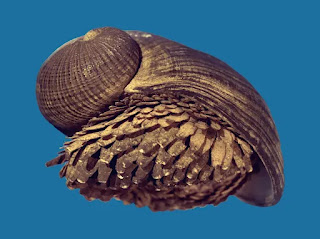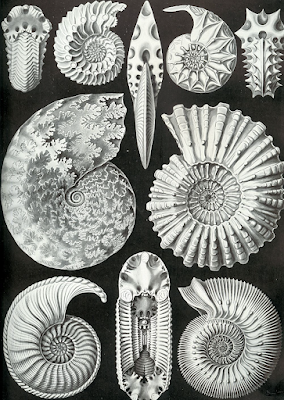Back in April, a screaming came across the sky, the announcement of a new Thomas Pynchon novel, to be published in October, entitled Shadow Ticket. This marks a literary event, an unforeseen comet spark in the darkness. Pynchon is arguably the greatest living novelist on the strength of Gravity's Rainbow (1973) alone, but the reclusive 88-year-old had not published any new books since 2013's Bleeding Edge, so his fans might've been forgiven for thinking his days of writing new stuff might be over. There had been no word of any upcoming new work, until this big announcement dropped. This signal from the Counterforce emerges at an especially dark time in the world when it seems everything decent is under siege, the war machine rages on, books are being banned, free speech attacked, democracy crumbling, history rewritten, reality itself overstretched and worn out. We needed to hear from Pynchon at this moment.
His works have always had a prescience to them that has helped to inform the present moment, possibly because his novels often focus on an era in the past thru the lens of Pynchon's deep history, paranoiac descrying, and comic relief. I'm thinking of how Gravity's Rainbow is a novel from the early 1970s but is set in Europe at the end of World War II, following the ridiculous misadventures of a wandering lieutenant and his cohort of castoffs aka "The Counterforce" and their attempts to jam the gears of power and thwart the military-industrial complex seeking to consolidate power out of the ashes of post-war Europe. I'm thinking also of Bleeding Edge, the 2013 novel that deals with the tech underground, hackers and cyberwars, although it takes place at the end of the 90s dot-com boom in NYC, with its narrative punctuated by the 9/11 attacks. And then there's also Against the Day, which is my favorite Pynchon book, it came out in the mid-2000s, a work of historical fiction focused on years at the end of the 19th century and into the 20th, weaving world-building narratives across decades with a global setting featuring elements of espionage, steampunk, sci-fi fantasy, and anarchist westerns, while examining and educating the reader on some of the factors that led to the First World War. (See my longer write-ups about Gravity's Rainbow here, Bleeding Edge here, and Against the Day here.)
We don't know much about the new novel, Shadow Ticket, at this point except for the one paragraph description provided by Pynchon himself. His synopsis places the story in 1932, focusing on a private eye in Wisconsin, Hicks McTaggart, who somehow gets dragged into "bringing back the heiress of a Wisconsin cheese fortune who’s taken a mind to go wandering" and ends up in Europe getting "entangled with Nazis, Soviet agents, British counterspies, swing musicians, practitioners of the paranormal, outlaw motorcyclists, and the troubles that come with each of them." The elements of a private detective, caught up in the crossfire of counterespionage, in the period leading up to a major war, these are all familiar in the Pynchon universe. The internet has been buzzing with Pynchon news ever since, with some readers having received review copies of the upcoming book.
Amplifying the vibes of the Pynchon renaissance, of course, is the new film from director Paul Thomas Anderson, One Battle After Another, to appear in theaters next month September 26th, supposedly a loose adaptation of Pynchon's novel Vineland (1990). There were rumors for years that PTA was interested in making a movie of Vineland after the solid work he did adapting Inherent Vice, also a Pynchon novel, back in 2014. Leonardo DiCaprio stars in the new movie, in a lead role seemingly similar to that of Zoyd Wheeler from Vineland. Here's the trailer:
One Battle After Another (2025, trailer)
Vineland (1990) was Pynchon's first book following an extended silent period after Gravity's Rainbow (1973). It had a reputation for being Pynchon lite, a more approachable and even optimistic story than his previous works, although for all its lightness and humor, it's also a novel of political grief, forecasting the escalating authoritarian police state in the United States. Vineland takes place in the year 1984 in a fictional equivalent of Humboldt County, in northern California, during the heightened Reagan-era drug war. The story mainly follows a father's attempts to protect his daughter from the blowback of her parents' revolutionary activities in the 1960s. The new film looks to be a loose adaptation that places the period closer to the present day, ostensibly with the parents' acts of resistance having to do with freeing immigrants locked in ICE prisons.
I first read Vineland back in 2017 during the first Trump regime in America. A few years later, I read a great book by Peter Coviello called Vineland Reread (2020) which revisited Vineland in light of the presently unfolding descent of the US into a fascist police state. Coviello is an incisive scholar, his book is dense for a slim volume, I learned a lot from it, as he examines the nuances and political depths of Pynchon's most approachable and light-hearted novel as amounting to a story of resistance against authoritarianism and the carceral state. Consider it recommended reading.
Around the time of his Vineland Reread book, Coviello wrote an article with some of the main points from his book, you can read that piece here, it's called "Vineland and the Coming Police State" where he writes of Pynchon's 1990 novel:
It hasn’t become less sad, and certainly not less funny. But read it today, in the midst of our own fever dream of penal sociality, and you are liable to be taken aback by the clarity of its insistence that a style of carceral fanaticism—a making over of everyday life into the image of perpetual security crisis—is no less a signature of the thing we call neoliberalism than are manic privatization, oligarchic dominion, and the total absorption of public life into market imperatives. Uproarious and joy-propounding as it is, Vineland is a novel of acute political grief—a thing as near to us as it has ever been, and likely to get nearer.
Can't help but be struck by how some of these phrases resonate with today, like "carceral fanaticism" in a time where the regime promotes something they're calling "Alligator Alcatraz"; and "a making over of everyday life into the image of perpetual security crisis" when the senile scoundrel occupying the presidency has manufactured crises in order to send the military to occupy American cities.
Another book I was reading around that time was Occupy Pynchon: Politics After Gravity's Rainbow (2017) by Sean Carswell. It’s an academic study, this one looking at the novels Pynchon published after Gravity's Rainbow and examining their politics in light of the Occupy movement and the Arab Spring. The novels from Vineland thru Bleeding Edge seem to model a resistance that is non-hierarchical, horizontal, fragmentary, harder to detect and crush. But even beyond any kind of organized community resistance, Pynchon also celebrates the individual's enduring refusal to comply with authoritarian control. Small acts of kindness, simple gestures of affection, or the creation of good art, anything to emphasize our humanity, to preserve culture and oppose the continued authoritarian efforts to rot our brains with stress and frighten us into submission. Just like Peter Coviello's Vineland Reread book mentioned above, Carswell's study adds new depths to Pynchon's lighter, slimmer novels like Inherent Vice and Bleeding Edge, while highlighting the shift in attitude and vibes after the dark paranoia of Gravity's Rainbow, moving to a brighter, more humane, optimistic resistance.
* * *
What is the counterforce? That's never made exactly clear. It's a subtle, unofficial, intangible, loose shifting entity that is named in Gravity's Rainbow, but which is present across all of Pynchon's novels in some way, always with a vague, imperceptible quality to it. A book by J.M. Tyree about the counterforce as it relates to Inherent Vice considers it to be an antidote to all orthodoxies, an outlook that recognizes that despite recent history suggesting "the low likelihood of the present and the future turning out any differently […] we still must care for one another as the tragedy unfolds." To quote from an article written by a biologist in a scientific publication, the counterforce could be seen as more of "an organizing principle" than an entity:
...in the last section of Gravity's Rainbow, there is a “counterforce”, an organizing principle that runs counter to the tendency towards maximum entropy, at least in some instances. His metaphor for the organizing force is the period immediately after the fall of Nazi Germany, when competing interests — national, commercial, and individual — scurried about to carve order out of the rubble. Pynchon ascribes almost mythical character to the counterforce, which he also refers to as the “green uprising” or the “Titans of the Earth.” He suggests that there is a general principle, as fundamental as the second law of thermodynamics, but running in the opposite direction, that allows daisies to grow out of the ashes.
This fundamental law of the universe, a counter-entropy, allowing daisies to grow out of the ashes, reminds me of a recurring theme in Joyce's Finnegans Wake, captured in a quote Joyce took from historian Edgar Quinet, of abundant flowers growing out of the rubble of clashing civilizations throughout history's cycles of wars. All of this stuff also makes me think of the work done by artists, scholars, authors, monks throughout history trying to preserve and encapsulate the treasures of culture, buried underground or otherwise fortified to endure through the chaos and destruction of the siege, to plant seeds for the future.
Another version of a fundamental law of the universe captured in a quote is used by Pynchon in Vineland where a character has memorized a passage from Ralph Waldo Emerson having discovered it "in a jailhouse copy of The Varieties of Religious Experience by William James," which goes:
Secret retributions are always restoring the level, when disturbed, of the divine justice. It is impossible to tilt the beam. All the tyrants and proprietors and monopolists of the world in vain set their shoulders to heave the bar. Settles forever more the ponderous equator to its line, and man and mote, and star and sun, must range to it, or be pulverized by the recoil.
[- Ralph Waldo Emerson] (from Vineland, Pynchon, p. 369)
I'm glad to see in the summer of 2025, Thomas Pynchon is now having a moment. It means great literature is having a moment. A new book from such a legendary writer is some of the best news of this year. I've been seeing copies of Vineland stacked forefront in bookstores across the country in the past year. A new movie inspired by Vineland is about to drop, with Benicio del Toro and DiCaprio. And then we get Shadow Ticket. Something like the counterforce is returning.
A few other things to check out: the Biblioklept blog gave annotations to The Guardian's recent ranking of Pynchon's novels. LitHub also wrote about why Vineland is the novel we need right now. And some reading groups dedicated to Vineland started up, including this one at the RAWillumination.net blog.
























